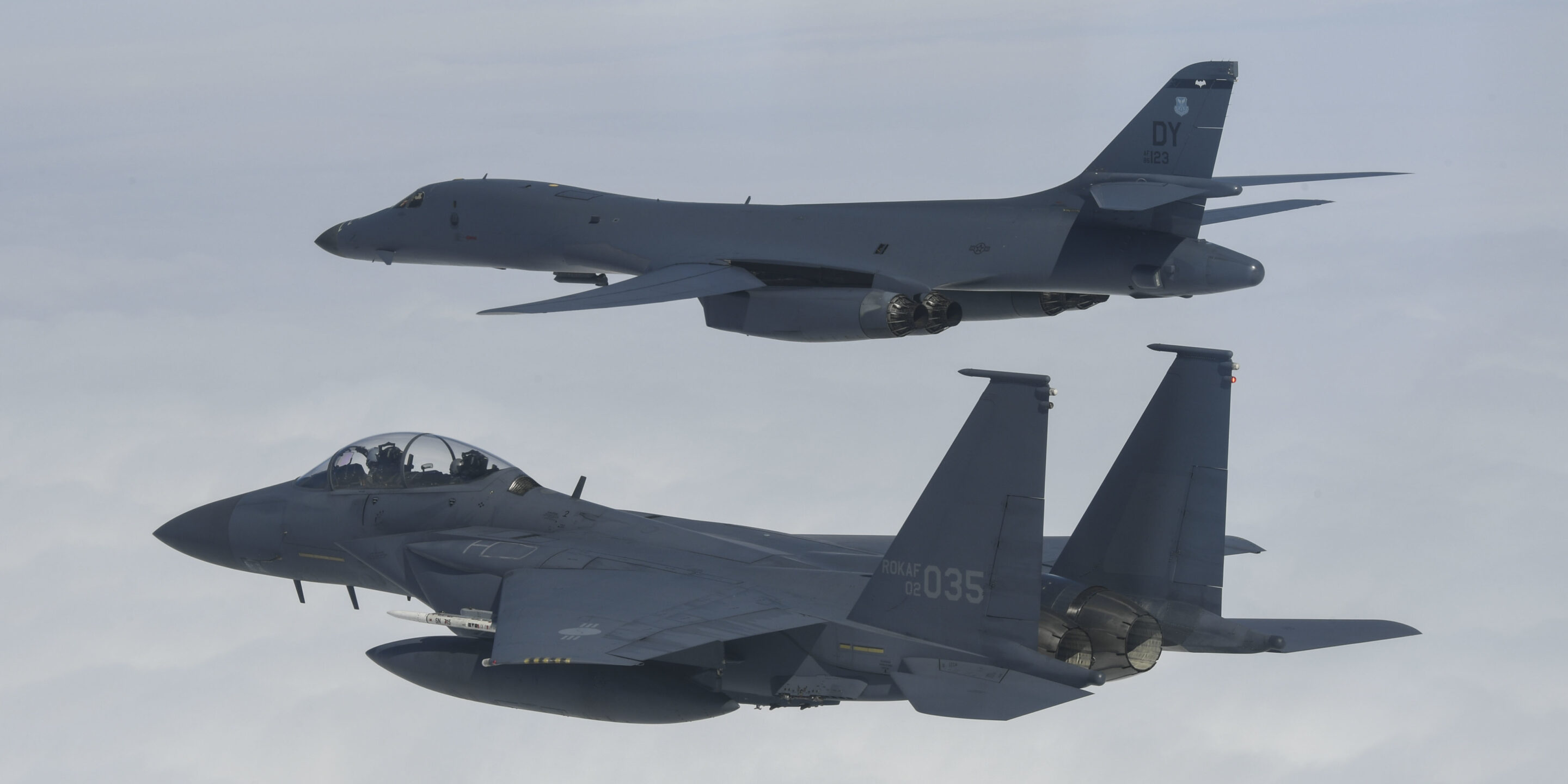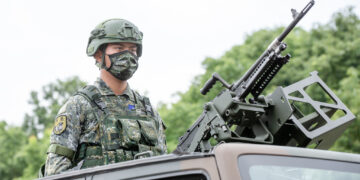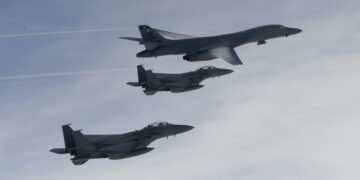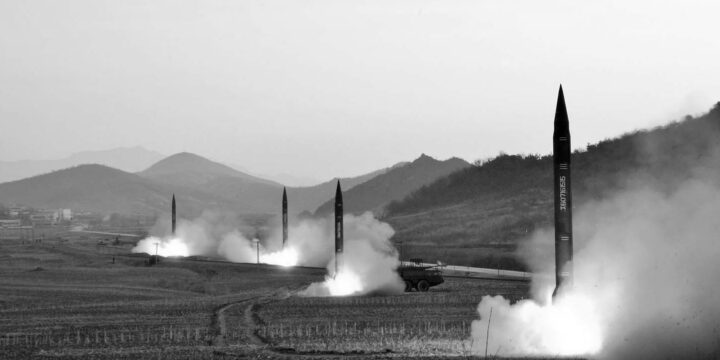The U.S. is strong and safe—North Korea is weak, deterred by U.S. power, and desperate for economic relief
- U.S. interests in the DPRK are narrow: deterring the DPRK, avoiding U.S.-DPRK war, and minimizing proliferation risks.
- U.S. power successfully deters the DPRK. Overwhelming U.S. conventional and nuclear superiority ensures the DPRK’s destruction in the event of an unprovoked war on the ROK, its neighbor to the south, let alone a direct attack on the U.S.
- The DPRK’s conventional forces are weak and outdated. Its small nuclear arsenal compensates for this weakness and takes the U.S. military option off the table. But the regime cannot employ nuclear weapons offensively without prompting its destruction.
- Denuclearization is unrealistic. Pursuing it will only agitate the DPRK—spurring more aggressive behavior—but progress toward peace is attainable and desirable. The status quo is stable and favors the U.S. Time is on our side, not the DPRK’s.
DPRK will not denuclearize—but it could normalize for limited economic relief
- There is no evidence Kim engaged in diplomacy because he planned to denuclearize—the DPRK’s U.N. ambassador explicitly ruled out denuclearization. Having achieved security, Kim seeks to trade good behavior for economic and security concessions.
- The U.S. has long pursued a failed approach to dealing with the DPRK: demanding up-front denuclearization, promising partial sanctions relief in return. This is a non-starter for the DPRK, whose conventional weakness makes it reliant on nuclear deterrence.
- Because its nuclear deterrent keeps it safe and provides leverage for negotiations with major powers, it is exceedingly unlikely the DPRK will denuclearize. But deterrence means a deal to remove the DPRK’s weapons is not essential to U.S. security.
- Because the DPRK is desperate for sanctions relief, it is likely to continue developing and testing weapons to gain leverage—but it would agree to various limitations on its arsenal for economic relief, making a deal for freezes and rollbacks achievable.
The U.S. only loses by starting a war
- The DPRK’s nuclear weapons render a U.S. military intervention unacceptably costly, making this weak nation feel secure enough to pursue normalization. They do not enable the DPRK to forcibly conquer the South. The only way the U.S. loses is by going to war.
- War is only likely if the U.S. (1) launches a preventive strike or (2) strangles the DPRK’s economy to a point that threatens the regime’s survival. Both actions could prompt a “use-it-or-lost-it” scenario for Kim’s nuclear arsenal.
- Attempts to forcibly denuclearize the DPRK would be catastrophic to U.S. interests, leaving U.S.-ally ROK—the world’s 12th largest economy—in ruins and risking the lives of hundreds of thousands of South Koreans and Americans in the region.
Absent a U.S. policy shift, expect 2020 to look like “fire and fury” of 2017
- The U.S. can (1) deter the DPRK while negotiating for better relations, or (2) deter the DPRK under a more adversarial approach.
- The U.S. remains secure under both scenarios, but diplomacy can slow, freeze, or rollback the DPRK’s arsenal and defuse tensions.
- The DPRK has suggested further provocations—like ballistic missile or nuclear tests—are coming in 2020. Such moves are predictable until the U.S. abandons a “big” agreement for “small,” reciprocal trust-building measures.
- The U.S. benefits most from pursuing incremental and attainable steps toward peace and normalization, which makes possible eventual denuclearization, though that is unlikely even in the long term.
A realistic approach to secure concrete gains for the U.S.
- The U.S. position of strength allows it to walk away at any time if the DPRK is unwilling to compromise.
- A successful deal would (1) incentivize the DPRK to moderate its belligerence and normalize, reducing the risk of a destructive war, and (2) offer some oversight and constraints on the DPRK’s nuclear program, strengthening U.S. counterproliferation efforts.
- In addition to sanctions relief, the U.S. can offer the DPRK: a pause in joint U.S.-ROK military exercises, a formal end to the Korean War, a reduction of U.S. troops on the Korean Peninsula, normalized relations, and security guarantees for the regime.
- These concessions are extremely valuable to the DPRK but relatively cheap for the U.S. since the status quo favors us.
- As the nation most threatened by the DPRK, the ROK should play a leading role in moving diplomacy forward—the U.S. should support its efforts at rapprochement.
- U.S.-DPRK diplomacy has improved relations, eased tensions, and reduced the chances of war, so it should continue.
More on Asia
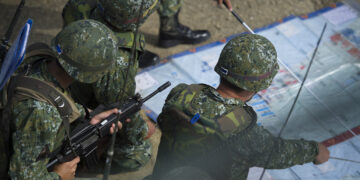
In the mediaTaiwan, China
Featuring Jennifer Kavanagh
October 4, 2025

Featuring Jennifer Kavanagh
September 29, 2025
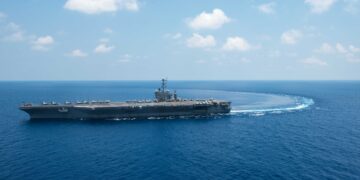
Featuring Lyle Goldstein
September 24, 2025
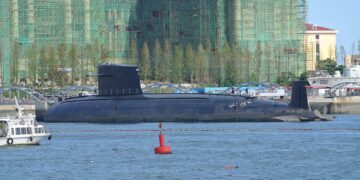
Featuring Lyle Goldstein
September 22, 2025
